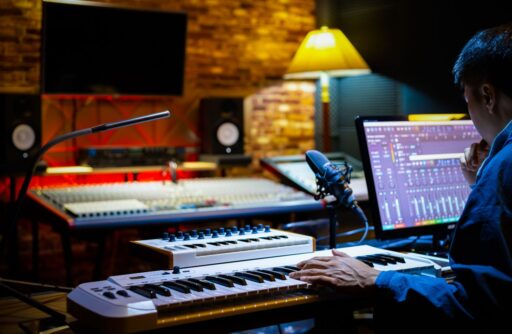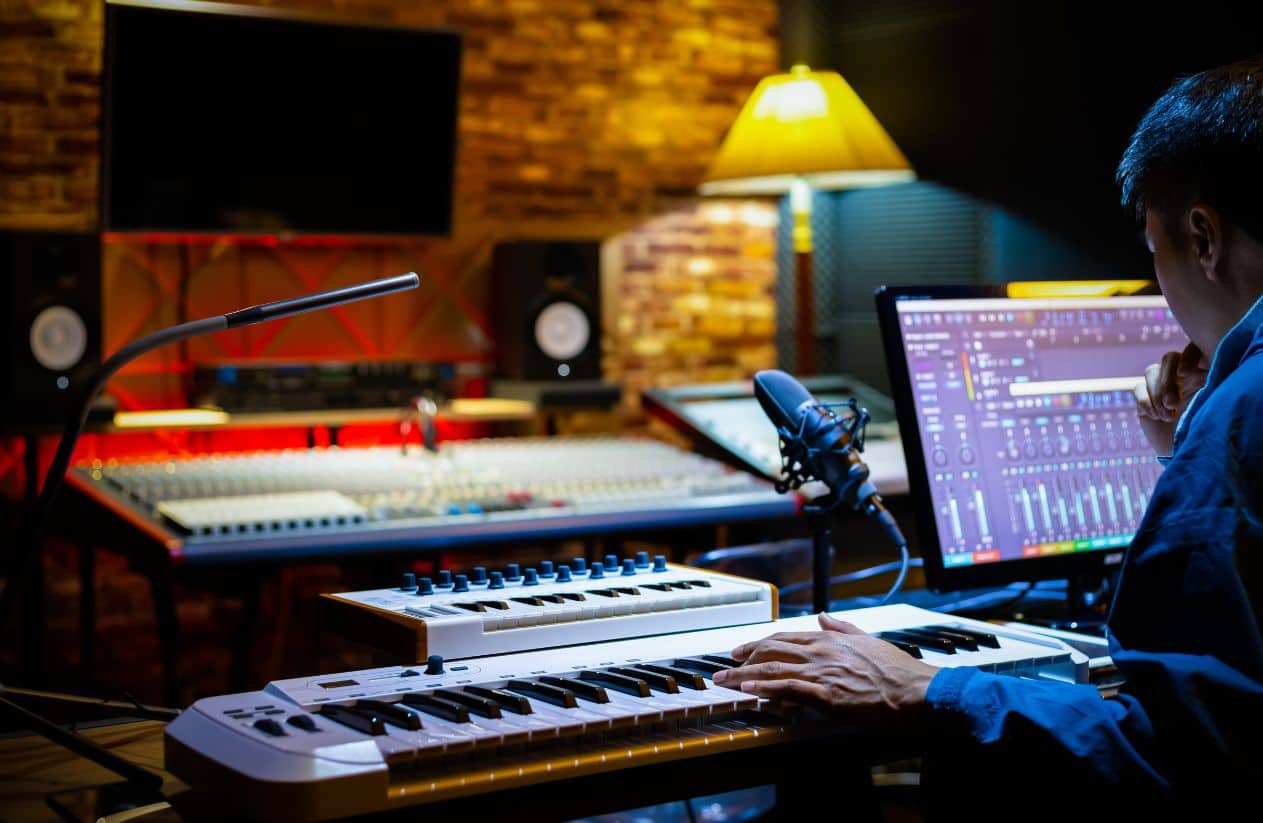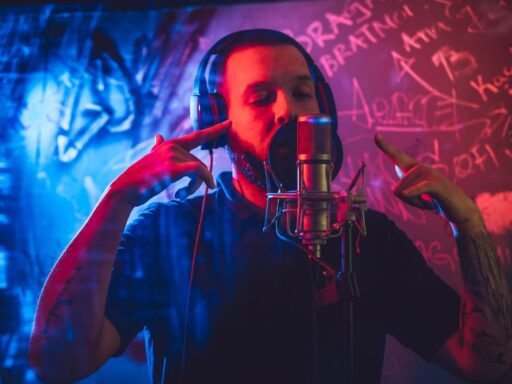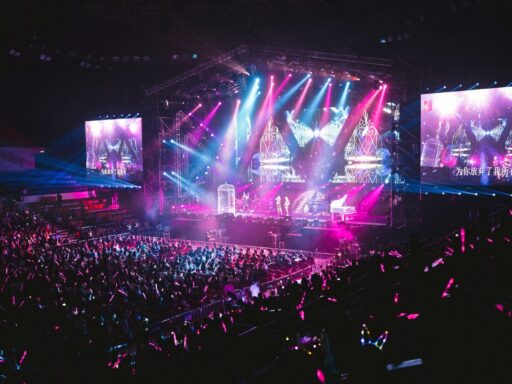Ever felt that surge of inspiration behind the decks, yearning to create the very sounds you spin? For many DJs, that passion evolves into a profound desire to shape original tracks, moving from curating playlists to crafting unique sonic worlds.
This exciting transition from DJ to music producer unlocks a new realm of creative possibilities, expanding your artistic voice and opening fresh career avenues beyond the booth. It’s a journey of learning and discovery, guided by four essential steps we’ll dive into.
As you embark on this rewarding path, a vibrant community and powerful platforms are ready to support your ambition, connecting you with resources and connections.
Mastering the Craft: Diving Deep into Music Production Fundamentals
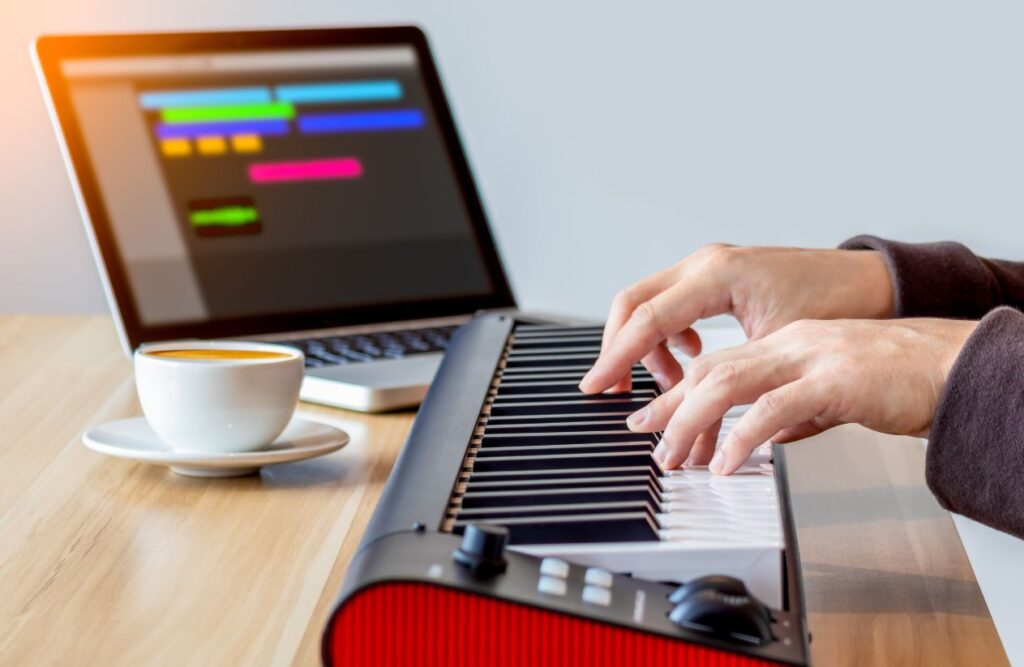
As you continue your journey, the next crucial step in your evolution is to truly master the craft of music production. This isn’t just about picking up a few new tricks; it’s about building a robust foundation of knowledge and skills that will empower your creative vision.
Laying the Foundation: Decoding DAWs and Core Concepts
Moving from DJ to music producer means shifting your primary workspace. Beyond the familiar mixer and turntables, you’ll enter the world of Digital Audio Workstations (DAWs). Think of a DAW as your complete virtual studio – it’s where you’ll compose, arrange, record, mix, and master your tracks.
Your creative hub, it’s essential to choose one that clicks with your individual workflow. Popular options like Ableton Live, Logic Pro, and FL Studio each offer unique strengths, so exploring demos can help you find your perfect match.
Once you’re comfortable navigating your chosen DAW, you’ll start speaking “the producer’s language.” This involves understanding key concepts that shape every track:
- Sound Design: This is the art of creating and manipulating sounds. It’s about sculpting unique textures, synth patches, and effects that give your music its character.
- Arrangement: How do you structure a song? Arrangement is about placing different musical elements – drums, bass, melodies, vocals – over time to build energy, tell a story, and keep listeners engaged.
- Mixing & Mastering (Basics): These are the final polish. Mixing balances all the individual sounds in your track, ensuring clarity and impact. Mastering then optimizes the overall sound for playback across various systems, making it loud and cohesive.
To navigate this new terrain, become a resource navigator. The internet is brimming with learning opportunities: countless YouTube channels offer free tutorials, dedicated online platforms provide structured courses (often taught by industry pros), and active online communities and forums are invaluable for asking questions, sharing ideas, and troubleshooting.
The Power of Play: Unleashing Creativity Through Experimentation
Production isn’t merely a technical exercise; it’s a vast playground for creative exploration. Moving beyond the blueprint of established tracks, this is where you truly unleash your unique voice.
Don’t be afraid to break the rules, to blend genres, or to combine sounds in unexpected ways. There’s no single “right” way to create, so embrace the freedom to experiment with different beats, rhythms, and melodies.
Many groundbreaking ideas stem from what we call the “happy accident principle.” Sometimes, the most unique sonic signatures emerge from unexpected discoveries made during playful tinkering.
Spend time simply messing around in your DAW, trying out different effects, or layering sounds in unusual combinations. This “time well spent” isn’t about immediate results; it’s about discovery, refinement, and gradually shaping a sound that is authentically yours.
Accelerating Your Growth: Learning from Industry Mentors
While self-discovery is vital, the wisdom of experienced producers can dramatically accelerate your progress. Learning from industry mentors provides invaluable insights into established techniques, workflow efficiencies, and even the business side of music.
How do you find your guides? Online workshops and masterclasses (from platforms like MasterClass or Splice) offer structured learning from top artists. For more personalized guidance, consider one-on-one coaching, which can provide tailored feedback on your specific projects. Don’t overlook local music production meetups or groups; these can be goldmines for networking and informal mentorship.
Finally, a powerful learning tool is analyzing and deconstructing tracks by your favorite producers – listening intently to how they achieve their sound. Remember, constructive criticism is a gift; embrace feedback to refine your work and avoid common pitfalls as you hone your craft.
Also Read: Essential Tips for Aspiring Mobile DJs (A Beginner’s Guide)
Crafting Your Command Center: Building a Smart Home Studio
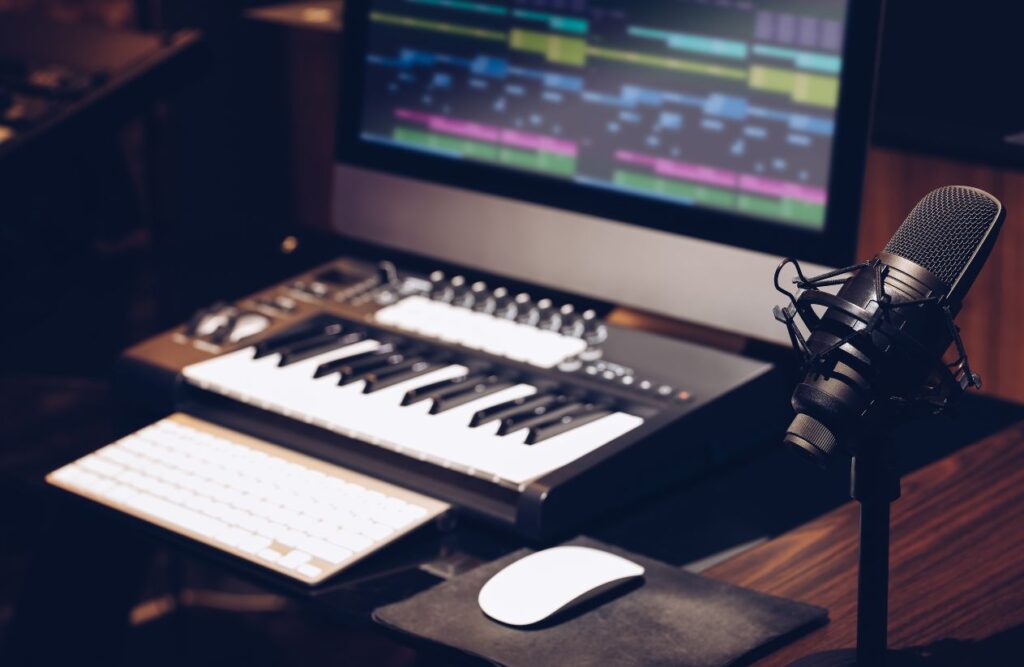
As you delve deeper into the art of music production, having the right tools at your fingertips becomes essential. This isn’t about breaking the bank, but rather making smart, informed choices to build a home studio that efficiently supports your creative workflow.
Think of it as crafting your personal command center, designed for clarity and control over your sound.
The Brain of Your Operation: Choosing Your DAW & Computer
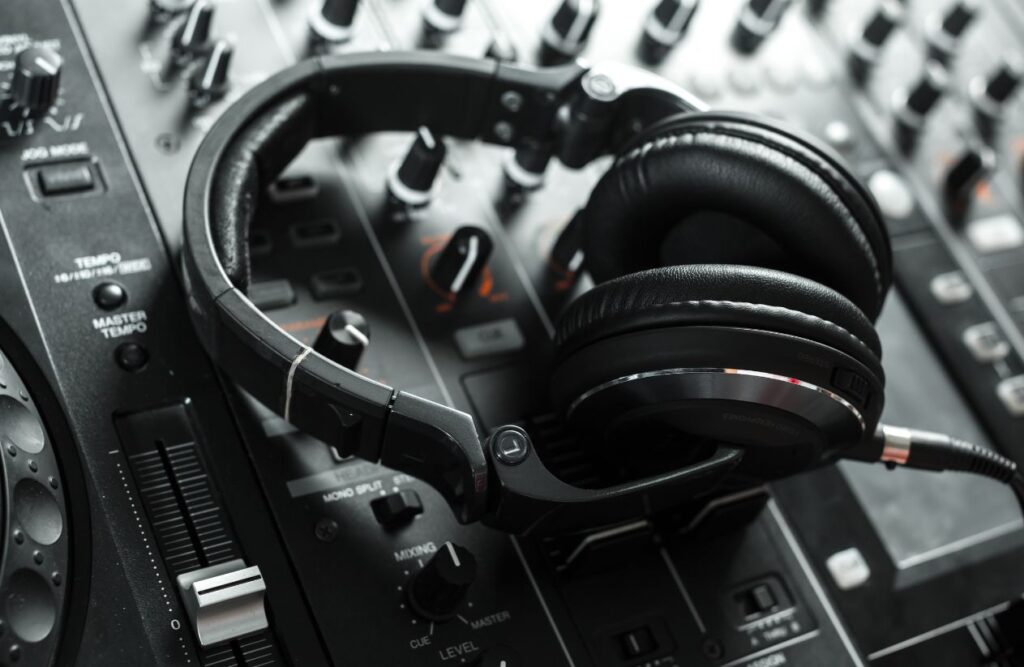
Your Digital Audio Workstation (DAW) remains the core of your production setup, so reiterating the importance of a seamless workflow is key.
It’s the software where all your ideas come to life. But a powerful DAW needs a capable machine to run it. When it comes to your computer, think of it as the engine powering your creativity.
For smooth, uninterrupted production, consider these specifications:
- Processor: A multi-core processor is crucial. Aim for at least an Intel i5 or AMD Ryzen 5, with an i7 or Ryzen 7 being highly recommended for more demanding projects and complex plugin chains.
- RAM: This is your computer’s short-term memory. A minimum of 16GB is advisable, but 32GB will provide significantly more headroom, especially for projects with many tracks, virtual instruments, and effects.
- Storage: Invest in a fast Solid State Drive (SSD) for your operating system, DAW installation, and sample libraries. This drastically reduces loading times and improves overall performance compared to traditional Hard Disk Drives (HDDs).
Beyond raw specs, optimizing performance involves good file management and careful plugin usage. Keep your project files organized and only load plugins you genuinely need to prevent unnecessary strain on your system.
Hearing Clearly: Essential Audio Interfaces & Monitoring Gear
To truly sculpt your sound, you need to hear it accurately. This is where your audio interface and monitoring setup come into play.
- The Sound Bridge: An audio interface acts as the crucial bridge between your analog world (microphones, instruments) and your digital DAW. It converts analog signals into digital data your computer can understand and vice-versa, significantly improving both recording quality and playback fidelity. Look for models with low latency (minimal delay between input and output) and sufficient inputs/outputs to accommodate your current and future recording needs.
- Truthful Listening: Studio monitors are perhaps the most vital component for accurate sound. Unlike consumer speakers that color the sound to make it “sound good,” studio monitors provide a flat frequency response. This means you hear your music as it truly is, without artificial boosts or cuts, allowing you to make precise mixing decisions that translate well to any playback system.
- Detail & Portability: Alongside monitors, a quality pair of studio headphones is indispensable. They offer a detailed, isolated listening experience crucial for fine-tuning edits, identifying subtle issues, and working in environments where monitors aren’t feasible. Choose headphones with a wide frequency range and a comfortable fit for those long production sessions.
Unlocking New Sounds: Specialized Instruments & Recording Tools
As you progress in your transition from DJ to music producer, you’ll likely want to expand your sonic palette beyond software.
- Expanding Your Palette: MIDI controllers, from simple keyboards to elaborate pad controllers, offer hands-on control over your virtual instruments and effects. They allow for expressive performances and intuitive sound manipulation.
- Sonic Sculptors: Synthesizers, whether hardware or software, are powerful tools for creating unique sounds from scratch. They provide endless possibilities for crafting custom basslines, pads, leads, and textures that define your signature sound.
- Capturing Authenticity: If you plan to record vocals, acoustic instruments, or even field recordings, a good microphone is critical. Condenser microphones are versatile for vocals and acoustic instruments, while dynamic microphones are excellent for louder sources or live performance capture. Choose based on your specific recording needs.
- Beyond the Essentials: While not immediate necessities, consider future investments like acoustic treatment for your room (to improve monitoring accuracy), external effects processors, or even specialized hardware samplers as your skills and needs evolve.
Related Content: Maximizing Your Music’s Reach: The Ultimate Guide to Spotify’s Algorithmic and Editorial Playlists
Forging Your Sonic Signature: The Art of Unique Sound Design
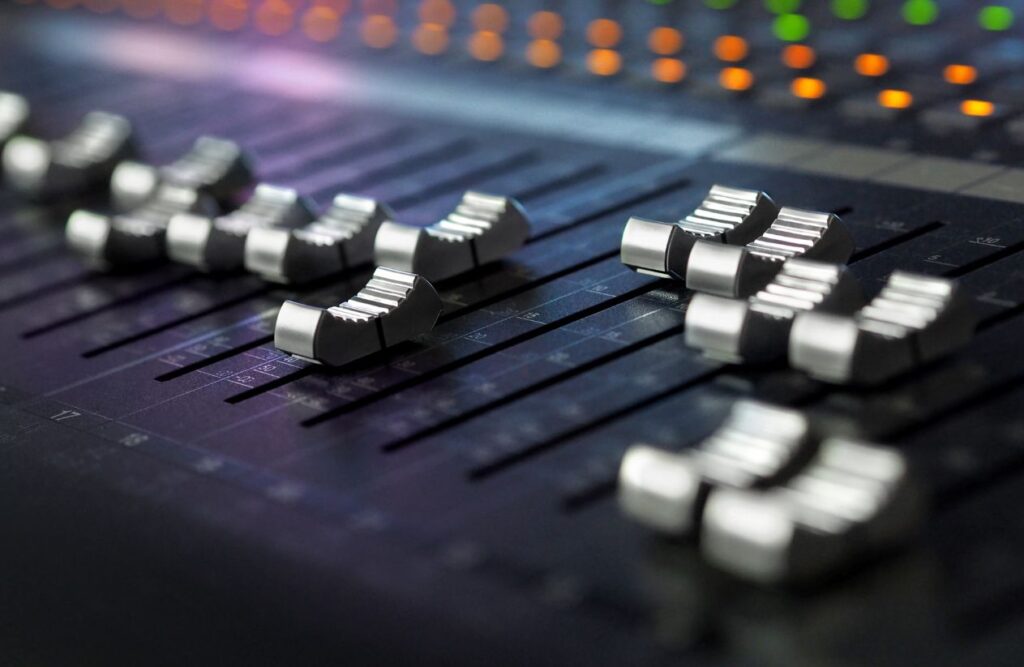
Moving beyond the technicalities of setting up your studio, the true magic of music production lies in developing your own unique artistic identity. This section is all about cultivating a sound that is unmistakably yours.
Beyond the Blueprint: Cultivating Your Creative Voice
Your unique sound isn’t just about how proficient you are with your DAW or how many plugins you own; it’s a deeply personal expression. Think of it as your producer’s identity, a sonic fingerprint that sets your work apart. While drawing inspiration from artists you admire is natural and healthy, the goal is to absorb, learn, and then transform that inspiration into something original, actively avoiding direct copying.
Your personal experiences, the music that shaped you, and even your cultural background can all serve as powerful influences, allowing you to tell compelling stories through sound.
Genre Alchemy: Blending and Innovating Musical Styles
As a DJ, you already possess a vast knowledge of musical genres, understanding their nuances and emotional impact. This is your secret weapon in the studio. Now, it’s time to leverage that advantage for creative fusion, becoming an alchemist of sound. Don’t be afraid to experiment with blending and innovating musical styles.
Consider these concrete approaches to genre blending:
- Rhythmic Borrowing: Take a driving drum pattern from a techno track and combine it with a soulful melody from R&B.
- Textural Blending: Layer the ethereal pads of ambient music over the gritty bassline of dubstep, or infuse traditional instrumentation into electronic soundscapes.
- Emotional Crossover: Capture the melancholic mood of a folk ballad and express it through the sonic palette of a cinematic score.
The aim is to break boundaries, pushing creative limits to discover entirely new sonic territories that resonate with your unique vision.
The Producer’s Journey: Embracing Continuous Evolution
Your sonic signature isn’t a fixed destination; it’s a living canvas, constantly evolving as you grow as an artist and as a person. The journey from DJ to music producer is one of continuous adaptation and refinement. Embrace the importance of staying open to new techniques, emerging technologies, and diverse musical influences.
Each new skill learned, every successful or even challenging project, contributes to the richness and depth of your sound. This ongoing evolution is what truly connects your artistic growth to building a lasting career and leaving your unique mark on the music world.
Expanding Your Orbit: Networking & Collaboration in the Music World

Beyond individual skill and unique sound, the music industry thrives on connection. Forging meaningful relationships and embracing collaboration is a vital step in your journey to transition from DJ to music producer. This section explores how expanding your circle can unlock new opportunities and accelerate your growth.
Building Bridges: Cultivating Authentic Industry Connections
In the often-competitive world of music, genuine relationships are far more valuable than a long list of mere contacts. The human element is paramount. Seek out opportunities to connect with fellow artists, producers, engineers, and industry professionals.
Where to connect:
- Industry Events, Conferences, Workshops: These are prime environments for meeting like-minded individuals and established figures. Think music tech expos, production seminars, or artist meet-and-greets.
- Local Music Scenes, Open Mic Nights, Producer Meetups: Don’t underestimate the power of your local community. Attend live shows, participate in local jams, or join producer-focused gatherings to build rapport face-to-face.
- Online Communities and Forums: Digital spaces like Reddit music production subreddits, Discord servers dedicated to specific DAWs or genres, and specialized online music forums offer global networking opportunities.
The art of engagement lies in fostering quality connections. This means active listening when others share their experiences, offering genuine value (perhaps by sharing a helpful tip or a resource), thoughtful follow-ups after initial meetings, and consistently being supportive of others’ work.
Synergy in Sound: The Power of Collaborative Projects
Collaboration is a powerful accelerant for learning and a catalyst for fresh ideas. When you work with others, you gain new perspectives, learn different techniques, and share the creative load.
Tips for finding your tribe:
- Online Platforms: Sites like SoundCloud, Bandcamp, and dedicated collaboration platforms (e.g., Splice Sounds’ community features) are excellent for discovering artists looking to team up.
- Local Musicians, Vocalists, Other Producers: Reach out to talented individuals in your local scene. A simple coffee meeting can spark a groundbreaking project.
- Attending Jam Sessions or Creative Workshops: These informal settings are perfect for spontaneous collaboration and finding people whose creative energy aligns with yours.
The mutual benefits of collaboration are immense: you combine diverse skill sets, share the workload, and significantly expand your reach to new audiences through your collaborators’ networks.
Digital Footprint: Leveraging Online Platforms for Growth
In today’s interconnected world, your digital footprint is your calling card. Leveraging online platforms effectively is crucial for showcasing your journey and connecting with the wider music community.
- Showcasing Your Journey: Consistently create content that highlights your progress. This could be behind-the-scenes snippets of your production process, short demos of new ideas, or polished finished tracks. Authenticity resonates.
- Engage and Interact: Don’t just post; participate. Comment on other artists’ work, share valuable insights, and actively engage in online discussions. Be a part of the conversation.
- Discovery & Reach: Platforms like SoundCloud, YouTube, Instagram, and TikTok serve as powerful discovery tools. Use them to share your music, attract new listeners, and get noticed by industry professionals who can help propel your career forward. Each platform offers unique ways to connect and build your audience.
Also Read: Maximizing Event Success: A Guide to Effective Sponsorship Measurement
Conclusion: Your Production Journey Awaits
You’ve explored the four essential pillars for your transition from DJ to music producer: embracing the learning curve, building a smart home studio, forging your unique sonic signature, and expanding your orbit through networking and collaboration.
This journey promises immense personal and professional fulfillment as you transform your passion for music into tangible creations. Ready to take the leap? Platforms like AGNT can connect you with the resources and community to kickstart your production career. The possibilities in music production are truly limitless – your unique sound is waiting to be heard.
Transition from DJ to Music Producer- Frequently Asked Questions
Navigating the transition from being a professional DJ to becoming a music producer can raise many questions.
While both roles thrive on a deep love for music, they require different sets of skills and mindsets.
Here, we address some common queries that aspiring music producers may have as they embark on this journey.
Do I Need to Learn to Play an Instrument?
While not required, learning an instrument can help you compose better music. Many producers eventually learn an instrument to expand their skills.
How Much Should I Invest in Music Production Software?
There are free and affordable options to get you started. As your needs grow, you can invest in more advanced software. Remember, it’s your skill, not the price of your tools, that matters most.
Can My DJ Experience Benefit My Music Production Journey?
Yes! Your DJ experience gives you valuable insights into song structure, crowd response, and how to make tracks that work on the dancefloor. This knowledge gives you a unique advantage as a producer.
